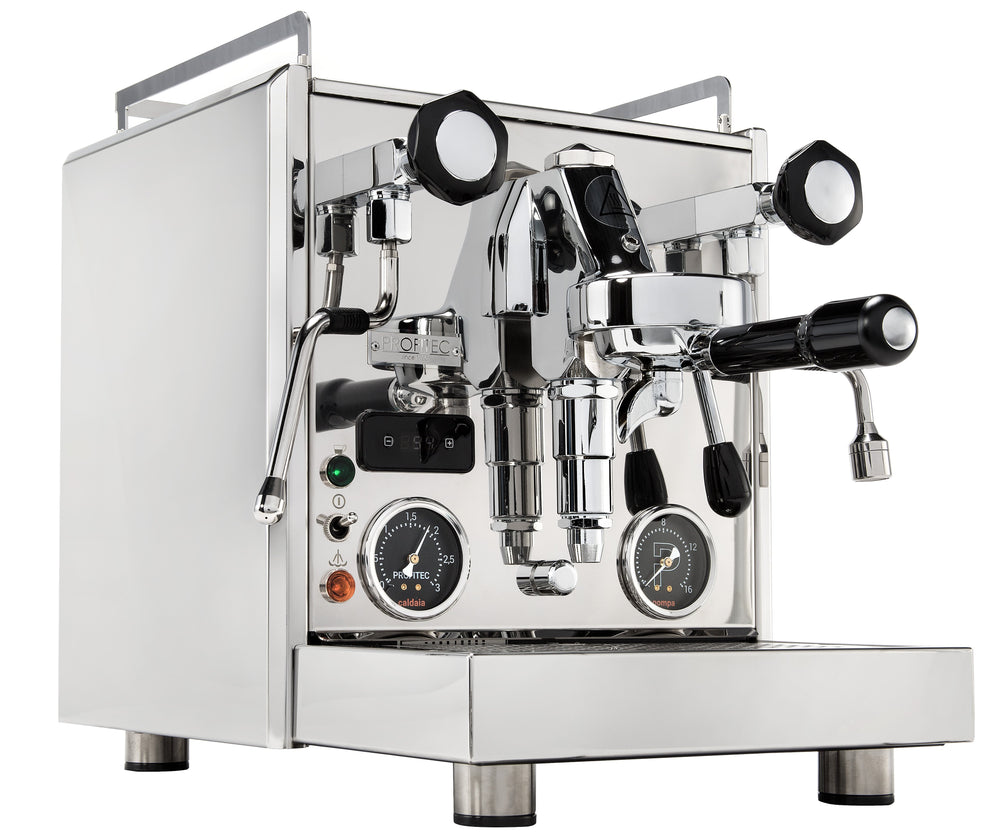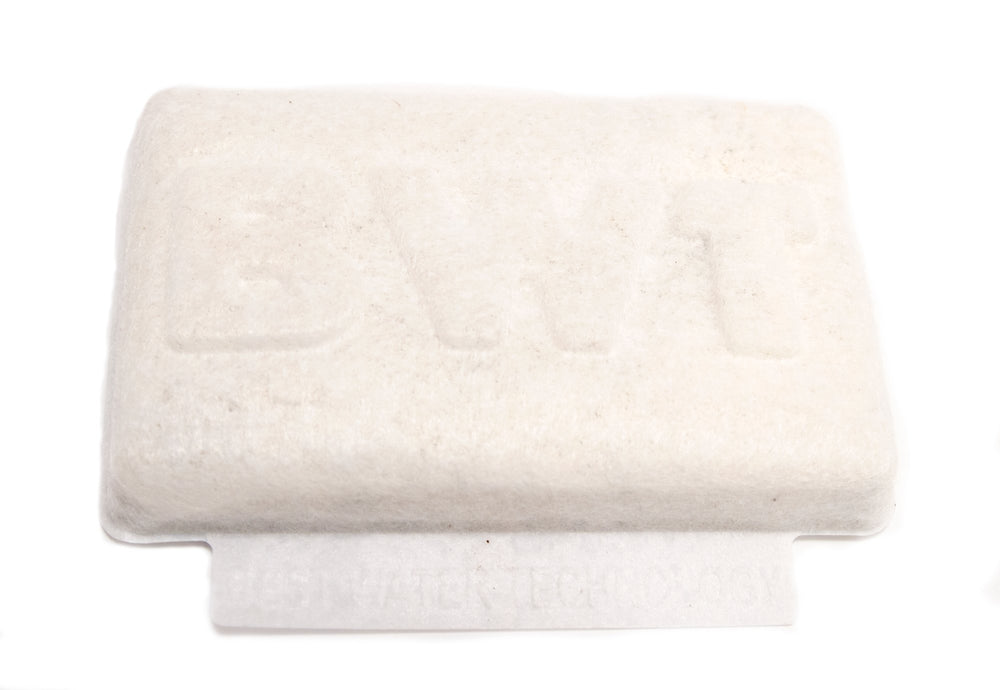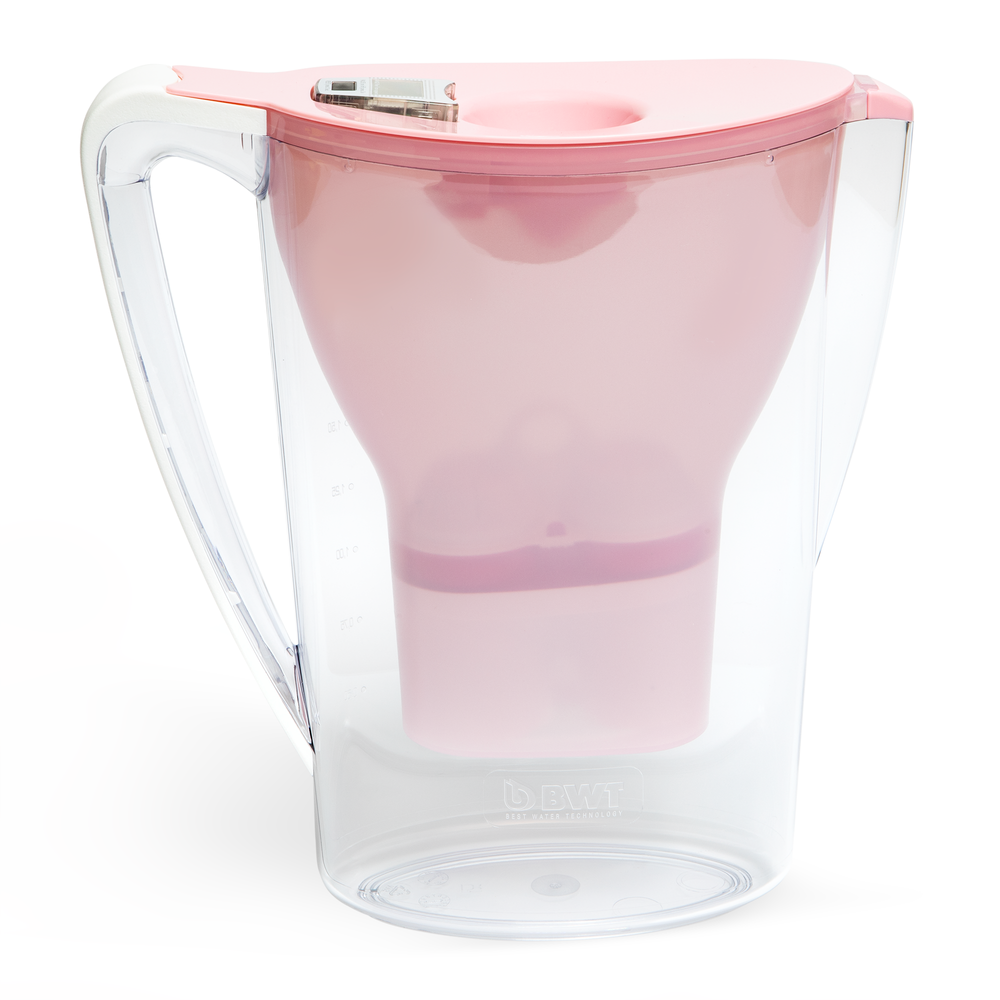Best Water for Coffee and How to Make the Best Tasting Coffee
Coffee and espresso are made up primarily of water, so using high-quality water makes better-tasting coffee and espresso. However, there’s another very important reason for using good water, and that’s protecting your investment in brewing equipment.
Today we’re covering all aspects of water quality. I’ll cover the methods for getting to a water quality that has the best flavor and also protects your brewing equipment. I’ll have options, including making your own water or using quality filtration products, to get your tap water where it needs to be for best flavor and scale prevention.
If you are using water with a mineral level which causes scale, I’ll touch briefly on descaling options including making your own low-cost descaling solution that’s not vinegar or using commercially available products.
Distilled vs Purified Water

Contrary to what you might think, pure distilled and reverse osmosis water should not be used for brewing coffee.
Let’s talk about the flavor aspect first. We get asked all the time “Why not use extra pure water like distilled or reverse osmosis water?” On the surface that seems to make perfect sense. If it’s purer it’s got to be better right? In fact, since those extra pure waters have no minerals in them, there’s nothing to cause scale. However, they can have the opposite effect of scale and cause equipment damage.
So back to flavor. Standard tap water is a relatively good solvent. It dissolves many things. Extra pure water that’s distilled or R.O. treated is an even better solvent. Using extra pure water to brew coffee or espresso isn’t the best idea because lacking the minerals, it over-extracts compounds and results in very bitter flavors.

Water and Your Machine
On top of that, the minerals in water enhance flavor. It’s kinda like salt in cooking. Without a little, food can be on the bland side. Now, of course, your doctor is going to tell you too much salt is not good for your health. The same is true for the health of your brewing equipment. You want the proper balance: a mineral level which enhances flavor prevents bitterness due to over-extraction and is also balanced so it’s not going to clog the arteries of your machine with scale deposits.
Getting Quality Water for Less Scale and More Flavor

Properly filtered water not only improves the taste of your coffee, but is also safe for your machine.
We service hundreds of machines every year here at Whole Latte Love, and scale is the number one cause of machine problems. In semi-automatic machines, it accumulates in boilers and on heating elements, solenoid valves, mushroom valves, vacuum relief valves, and basically any interior component in contact with heated water. In super-automatic machines, the same problems come up with the narrow passages of thermo-block boilers used in those being especially susceptible to clogging with scale.

Best Automatic Espresso Machines of 2021
So how do you get to water that’s good for flavor and reduces or eliminates scale buildup? There are a few options. For super-automatic coffee machines, use the in-tank filter as recommended by the manufacturer. They reduce water hardness yet maintain a proper mineral level for good flavor. For some manufacturers like JURA, use a filter as recommended and you never have to descale any of their machines. For others, using a filter will extend the time between descaling maintenance by a factor of four or more.
For semi-automatic espresso machines, there are a few options. For a plumbed-in machine, our favorite solution is the BWT Bestmax Premium Cartridge Filter. This installs in-line between your household plumbing and machine. Fully equipped, the system includes a pressure regulator and flow meter so you know when to change the cartridge. The Bestmax Premium uses patented ion-exchange technology to replace scale-causing calcium with magnesium to maintain flavor.
When used properly you will never have to descale your machine. If you have a plumbed-in machine this is the way to go and it’s pretty much-required equipment for dual boiler machines, which are very difficult if not impossible for most home users to descale. It’s what I use here for my Profitec Pro 700. In my case with a water hardness of 7°, the small cartridge has a capacity of over 1,000 liters. My cartridge cost with that is under thirteen cents per liter.

$4,249.00
For reservoir fed machines there are pad filters like the BWT Bestsave. Just drop it in the reservoir and you are good to go for treating up to 100 liters of water depending on the filter size and your source water's hardness.

$21.99
Another popular option is the 2.7-liter BWT Penguin Pitcher. It filters the water then remineralizes it with magnesium to maintain flavor. It’s different than all the other filter pitchers on the market. Some just do carbon filtration and do nothing to treat hardness, while others remove most all the minerals and leave nothing behind for flavor. The BWT does it all and leaves you with water that will not cause scale and tastes great through your machine or for drinking straight.

$57.99
One last solution is to make your own brew water starting with pure distilled or reverse osmosis water. If you’re interested in that, use the link here to watch my video on how to make SCA spec brew water. You'll produce water that tastes great and is unlikely to cause scale due to magnesium supplying the hardness.

How To Make Basic SCA Coffee Brew Water
As a reminder, do not use straight distilled or RO water in your machine. As I mentioned upfront it’s an incredibly good solvent. Without minerals added back in, it can cause the opposite of scale, which is corrosion of metal components. That’s why you never see ultra-pure water stored or transported in metal containers or pipes.
Descaling Your Espresso Machine

If you do not use properly filtered water, you will need to regularly descale your espresso machine.
At the start of the blog, I said I would touch briefly on descaling and how you can make your own descaler. Before that, a couple of things to know.
First, If you’ve been using water that’s likely to cause scale and you maybe neglected descaling maintenance, be aware you may run into problems. When you descale severally neglected machines you can cause chunks of scale to dislodge and cause problems within the hydraulics of your machine. So unless you want to risk learning the hard way, keep up on descaling maintenance or use water that reduces or eliminates scale in the first place.

Descale Products: Preventative Maintenance For Your Espresso Machine
Second, don’t use vinegar to descale. If you want to use it for glass coffee pots that’s fine, but do not put vinegar in a machine. There are a couple of reasons for that. Scale built up in a machine is a rather porous material. It can soak up and hold onto the vinegar taste and smell and then it can be difficult to get rid of. A bigger problem is what it can do to the seals inside some machines. There was a manufacturer who mistakenly recommended descaling their appliances with vinegar. In hard water areas where customers were repeatedly descaling with vinegar, they ended up with quite a few machine failures due to the vinegar degrading the seals. Needless to say, the manufacturer no longer recommends descaling with vinegar.
We recommend using the descaling product recommended by the manufacturer. Now I have seen viewers make comments on past videos that espresso companies are just trying to sell you something. Believe me, there’s very little money to be made selling descaling solution. What it’s really about is keeping their customers happy by making sure their machines continue to operate without problems. What I like about the products is that they are formulated to work safely and provide the proper concentration of acid to get the job done
Now, all that said you can make your own descaler using citric acid. You can use the link here for our video on how to do that. If you’re in the vinegar camp, well, citric acid is generally much cheaper in bulk than vinegar, it has no taste or odor, and it’s what’s used in many commercial descaling products. The trick is since you‘re just mixing citric acid powder with water, there’s no one concentration or recipe that’s appropriate for every machine so you’ll be flying a little blind on exactly how much to use.
Of course, in my opinion, what you really ought to do is feed your machine with water that’s going to significantly reduce or completely eliminate the need to descale in the first place and give you better-tasting coffee. The best way to do that is to use a filter that’s right for your machine or situation.
If you need some assistance, our coffee pros are ready to help get you the right filter all the way up to a complete in-line system with everything you need for a DIY installation.
 Canada
Canada

